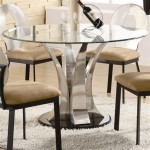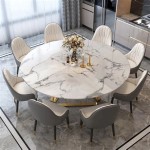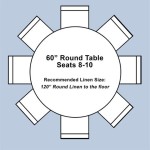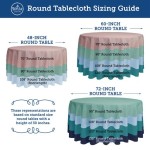The Importance of Table Setting
Table setting, the art of arranging cutlery, dishes, and other accoutrements on a dining table, is more than merely a practical necessity. It is a subtle yet potent form of communication, reflecting both the host's intention and the occasion's significance. Whether a casual family gathering or a formal dinner party, the way a table is set speaks volumes about the care and consideration invested in the experience. It sets the tone for the meal, influencing the atmosphere and enhancing the enjoyment of the food.
Setting the Stage for a Memorable Meal
The act of setting a table transforms a simple dining space into a dedicated realm for shared experiences. It suggests a deliberate pause from the everyday hustle, signaling a time for connection and enjoyment. A well-set table invites guests to linger, to converse, and to savor the moment. It encourages a sense of occasion, even for the most ordinary meals. The careful arrangement of plates, silverware, and glasses creates a sense of order and intention that elevates the experience from the mundane to the memorable.
Expressing Personal Style and Occasion
Beyond its practical function, table setting offers a canvas for personal expression. The choice of tablecloth, napkins, and centerpieces allows hosts to infuse their personality into the setting. A vibrant floral arrangement might signal a celebratory mood, while a minimalist approach with sleek linens may convey sophistication and restraint. The style of table setting can also subtly reflect the occasion. A formal dinner party might call for a more elaborate arrangement with multiple courses and accompanying silverware, while a casual get-together might embrace a simpler, more rustic aesthetic.
Furthermore, the placement of cutlery and glassware communicates the intended order of service. This unspoken language ensures that the meal flows smoothly, with each guest knowing the proper order for enjoying each course. The arrangement of glasses, from water to wine, signals the availability of different beverages throughout the meal, enhancing the dining experience with a sense of anticipation and refinement.
Creating a Sense of Order and Hospitality
The act of table setting fosters a sense of order and intentionality, which contributes to a more enjoyable dining experience. It demonstrates a level of care and consideration that extends beyond the food itself. The meticulous placement of each element conveys a sense of hospitality, signaling to guests that their presence is valued and that their comfort is a priority. This attention to detail can have a profound impact on the overall atmosphere, creating a welcoming and inviting space for conversation and connection.
The act of meticulously arranging dishes and silverware, selecting linens and centerpieces, is not merely a chore but a ritualistic gesture that resonates with the essence of hospitality. It signifies a desire to create a shared experience, to cultivate a sense of community around the table, and to make guests feel appreciated and cherished.
Beyond Practicality: Cultivating an Appreciation for the Art of Dining
While table setting serves a practical purpose, it also transcends mere functionality. It taps into a deeper appreciation for the art of dining, for the ritualistic act of coming together as a community to share a meal. Whether a simple family dinner or a grand event, the act of carefully setting the table elevates the experience, injecting intentionality and meaning into the everyday act of eating.
This commitment to detail, this embodiment of hospitality and care, extends the dining experience beyond the mere consumption of food. It creates a space for connection, for conversation, and for the enjoyment of shared moments. In a world increasingly dominated by urgency and technology, the act of table setting stands as a reminder of the importance of slowing down, savoring the moment, and appreciating the simple pleasure of shared experiences.

Setting The Table Day 40 A Virtuous Woman Proverbs 31 Ministry

How To Properly Set The Dinner Table A Cleaner World

Why Setting The Table Is An Important Life Skill For Children To Learn Manners Go

Table Setting As An Important Element Of Restaurant Business

How To Set A Table From Formal Casual Dining Architectural Digest

Setting The Table Catherine Davis

Perfect Table Settings Stalbridge Linen Services

How To Set Tables For Formal Casual Dining

How To Set A Table Cooking School Food Network

Tips For A Perfect Table Setting Stalbridge Linen Services
Related Posts








